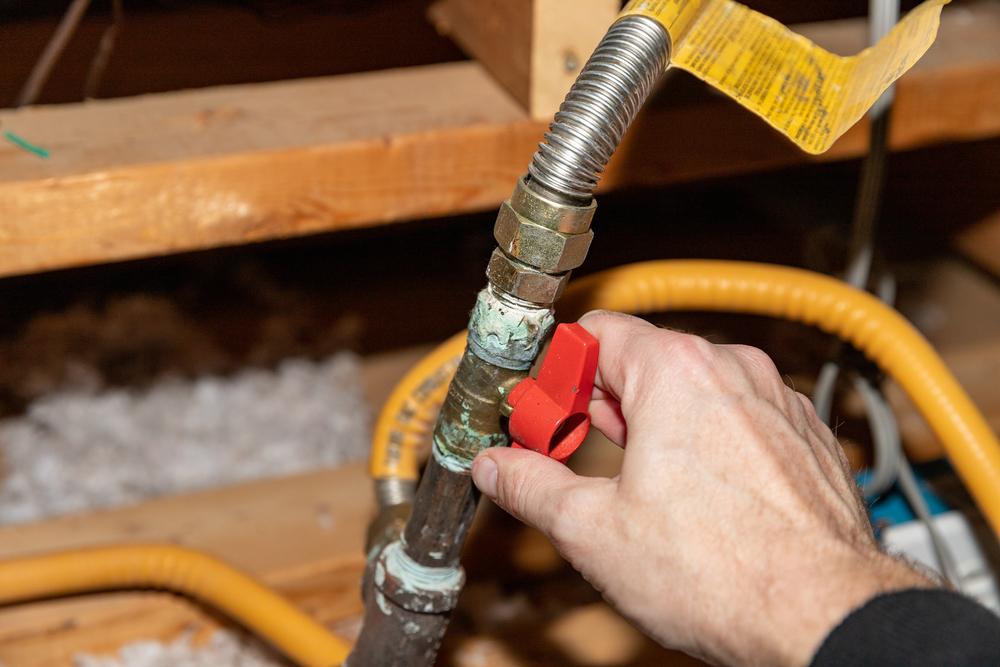Propane & Natural Gas Piping Installation and Replacement
Need gas service when constructing a new house or detached structure? Want to upgrade an existing home’s gas appliances? Are you thinking about upgrading to a boiler, pool heater, or gas tankless water heater? For all of your gas design, sizing, and installation requirements, get in touch with Meridian Home Services!
First-rate gas pipe installation is provided by Meridian Home Services, a local, veteran-owned plumbing, mechanical and electrical company. With our team’s excellent technical expertise, gas systems may be designed and sized, and new main gas lines, branch gas pipes, gas manifolds, gas appliances, and much more can be installed effectively. The Meridian Home Services staff guarantees a safe installation the first time, so trust us with your life safety needs. Get in touch with the Meridian Home Services staff for polite and prompt assistance anywhere in the greater Kansas City region.
Meridian Home Services Offers Comprehensive Craftsmanship-level Gas Installations:
- Pipe and tubing corrosion protection
- Black iron steel piping
- Copper tubing
- Polyethylene tubing
- Corrugated stainless steel tubing (CSST)
- Gas manifolds – shut off valves
- Gas pressure regulators – sediment traps – unions
- Gas appliance installations
- Appliance gas conversions – natural gas to propane
- Piping calculations and sizing
- Gas system layout and design

Gas Piping Installations – Did You Know
According to National Fire Protection Association (NFPA) research, gas leaks cause an average of 4,200 residential fires annually, which result in 40 fatalities. In addition, gas leaks and exposures unrelated to fires cause an additional 33,600 injuries and over 780 fatalities.
Residential buildings often use a low-pressure gas supply system with a water column of 0.7 to 0.9 inches (or around 1/3 of a pound per square inch). Nonetheless, a different higher-pressure system can be suitable in houses with extensive pipelines or several gas-burning equipment. The “red” meter, or 2 psi gas meter, is a residential application that is offered by certain, but not all, gas companies. The primary benefit of using somewhat greater gas pressure is that it requires a smaller gas pipe, which means that installation will be less costly. This has special significance for equipment with significant BTU input, such as big tankless water heaters or pool heaters that need lengthy pipe runs. Pressure drop is the reason smaller pipes may be used at greater gas pressures. Friction causes pressure to decrease when gas passes through a pipe, resulting in a pressure drop. Greater gas pressures may convey extremely large amounts of gas in smaller pipelines because they provide a greater permitted pressure drop.
Meter capacity is as crucial as gas pressure, especially when replacing an old gas appliance or thinking about installing a new device entirely. Each gas meter has a maximum output or delivery amount that is expressed in cubic feet per hour (CFH). The typical capacity of household gas meters is from 175,000 to 250,000 btu, which is often more than sufficient. However, meter capacity has to be taken into account when installing a tankless water heater, highly efficient boiler, or any other updated gas appliances. Gas appliances won’t get the required quantity of input BTUs if the entire simultaneous load exceeds the gas meter’s rated capacity, which might result in improper operation or a complete failure to ignite.
